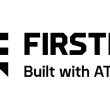FirstNet board votes to proceed with contract, AT&T award expected this week
Although the Rivada Mercury lawsuit in the U.S. Court of Federal Claims is complete, Rivada Mercury—led by Rivada Networks—still has the option to appeal the case. Whether an appeal will be made has not been decided, according to Rivada Networks spokesman Brian Carney. Rivada Networks has issued a statement expressing its intention to pursue contracts in states or territories that choose the “opt-out” alternative.
A Rivada Mercury appeal would impact FirstNet’s deployment plans only if Rivada Mercury were to win an appeal and then be selected as a superior bid to AT&T by an evaluation that already determined that Rivada Mercury offering is not in the same “competitive range” as the AT&T proposal—an unlikely scenario, according to legal and procurement sources.
Multiple public-safety officials attending the special board meeting in person or via teleconference acknowledged the significance of the vote to make the first-responder broadband network initiative happen, despite extremely long odds at various junctures.
Harlin McEwen, chairman of FirstNet’s Public Safety Advisory Committee, said he has spent the last two decades of his 60-year law-enforcement career helping advocate for various bipartisan measures that have led to the FirstNet contract being on the verge of becoming reality.
However, McEwen acknowledged that he was extremely skeptical when Nextel Communications co-founder Morgan O’Brien approached him in 2005 with the vision that public safety should have dedicated spectrum to support a nationwide broadband system.
“I remember clearly saying to him [O’Brien], ‘I don’t think that has a chance [of happening],’” McEwen said. “But then … I started studying his idea, and eventually, he won me over.”
Indeed, McEwen eventually served as chairman of the Public Safety Spectrum Trust (PSST), an unfunded organization that was established in 2007 and given 10 MHz of 700 MHz spectrum in an attempt to address the need for a first-responder broadband network. However, a 2008 spectrum auction failed to attract a qualifying bid.
In 2009, public-safety leaders decided to pursue legislation to have the 700 MHz D Block allocated to public safety. Despite an effort by some commercial carriers to have the airwaves auctioned, the public-safety advocacy effort ultimately resulted in the 2012 law that created FirstNet.
It was a difficult process, Johnson said.
“After the law passed, someone said to me, ‘I don’t know if you guys know this, but what you just did was impossible,’” Johnson said. “I will say, in retrospect, if we had known how impossible it was, we wouldn’t have tried it.
“I think the only thing we had going for us was a bunch of hard-headed public-safety people who don’t take ‘No’ for an answer very well … We don’t take ‘No’ very well, and we don’t quit very easy. And, when public safety and the purpose of public safety [are at stake], you can’t stop. But I reflect that it really was impossible—we just didn’t know it.”










